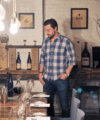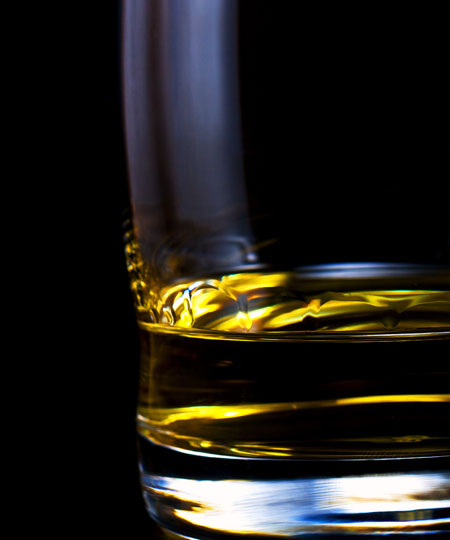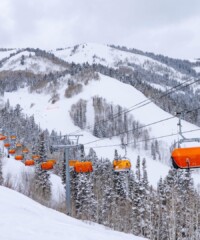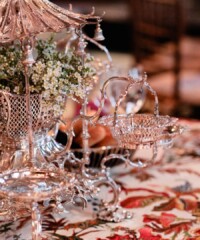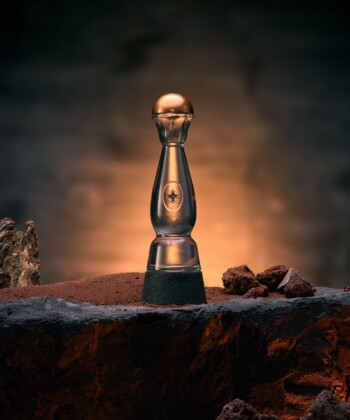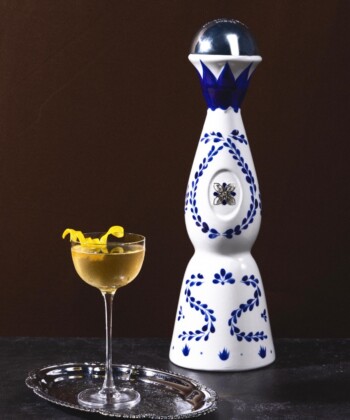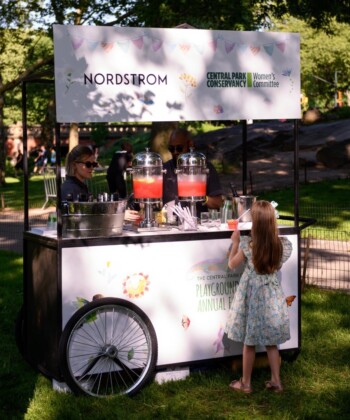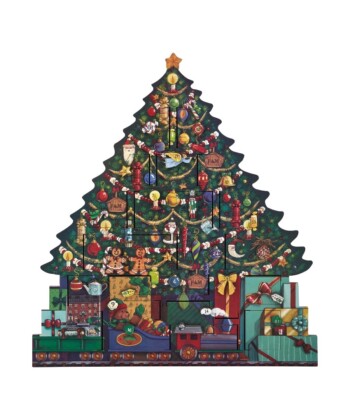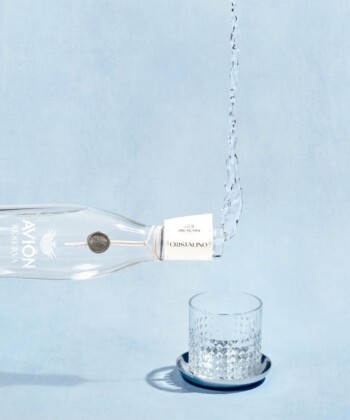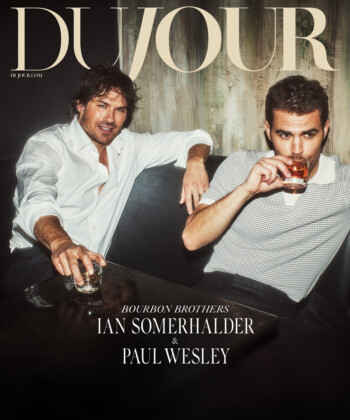Scottish-born whiskey expert Nicholas Pollacchi spent years as a brand ambassador for big name companies like Macallan and Highland Park. He would often host tasting events for corporate clients and whiskey enthusiasts, but he found that while the tastings were fun, they didn’t accurately reflect consumers’ drinking habits.
“Brands position themselves to only drink their own brand, but that’s not how whiskey drinkers drink. They consume a large variety of different whiskey brands at the same time,” Pollacchi explains. “The brand tastings are great, but I always felt that I came off like a salesman. I decided to start my own company The Whisky Dog, because there wasn’t a luxury whiskey tasting company that could host a tasting in a bipartisan way. It gives me the freedom to say, ‘I don’t work for these brands, so feel free to tell me your honest opinion.’”
Now, Pollacchi uses his years of knowledge to host tastings all over the world for private and corporate clients. Pollacchi’s events run the gamut—tastings can take place anywhere from a high-end steakhouse to a CEO’s office. “We really bring an experience. I tell stories about what it feels like to live and work at a distillery in Scotland, how the single malts are made and how the whiskeys are blended,” he says. “We’re not super geeky—we’re not there to bore you about whiskey. My job is to get people excited and engaged.”
Below, Pollacchi provides some insight on the crucial elements to hosting a whiskey tasting.
1. The Glassware
Having the appropriate glassware is a critical aspect of tastings. Typically, Pollacchi handles sourcing the glassware for clients unless they choose to do it themselves. “I like to use Glencairn crystal glasses which are the proper whiskey glasses, but they can be difficult to find. If Glencairn glasses aren’t available, my go-to glass is actually 5oz cognac snifter,” he says. “It’s a small tulip-shaped glass that allows all of the aromas to be concentrated to one point at the top of the glass. That’s what any good whiskey glass should do.”
2. The Number of Bottles
“Usually my recommendation is no more than four or five whiskies, regardless of the size of the group. Most times I’ll do four whiskies during the tasting and then a fifth for people to hang around and drink afterward,” says Pollacchi. “It’s the perfect number that enables people to appreciate the four different flavors. I’ve been with companies that do seven or eight whiskies, and after that many you’re not really tasting anymore, and you’ve probably consumed too much.”
3. The Water
It’s important for there to be still water on hand during the tasting. For the purest experience, Pollacchi suggests Smart Water. “Some bottled waters still carry plastic flavors to me,” he says.
4. The Ice
While it’s not an absolute necessity, Pollacchi loves bringing an ice carver in for tastings. For parties in the New York area, Pollacchi recommends Shintaro Okamoto, whose company Okamoto Studio supplies custom-carved ice to some of the most well-respected cocktail bars in Manhattan. Okamoto explains that the size and shape of ice used in whiskey—and all drinks for that matter—has a dramatic effect on the taste. For whiskey tastings, Okamoto hand-carves ice spheres rather than cubes, because they have less surface area for the same volume. “It means the whiskey maintains a core temperature and gives you the maximum amount of chill with the least amount of dilution,” Okamoto explains. “Everyone says once you experience our ice you can’t go back. It’s a very palpable, different experience visually, physically and chemically.”
5. The Accouterments
Hosting a tasting doesn’t have to stop at whiskey. Pollacchi will often bring in a barber for shaves, a shoe shiner and a luxury cigar roller—or have guests get measured for custom ties and shirts during the tasting.
6. The Whiskies
When choosing whiskies for clients at tastings, Pollacchi first assess the flavor profile by asking questions like: Do you like whiskies that are sweet, or rich or smoky? Do you like bourbons, or do you like scotch whiskies? Have you ever tried anything from Japan or Canada? “My job is to understand what the clients like to drink, and then give them four similar flavor profiles, but bottles they never would have thought to go out and buy themselves,” he says. “I choose four to five bottles that are definite examples of expressions from different regions, and different ages and different processes.”
Visit www.TheWhiskyDog.com to inquire about pricing for corporate and private whiskey tasting events.




















